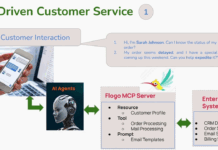
Almost every day we read about how people across the globe are using big data and analytics tools to make the world a better place. One such city that’s taking advantage of these capabilities is Buffalo, New York.
Buffalo is using big data analytics to support a program called Operation Clean Sweep.
Under this program, which began in 2005, dozens of city departments, their partners from county, state, and federal agencies along with nonprofit health and human services providers analyze a variety of data sets to determine specific areas that are in need of improvement.
Team members analyze 311 and 911 calls along with poverty indicators, population density maps, and other data feeds to identify neighborhoods that are in need of overhauls.
The data analysis that’s conducted as part of Clean Sweep culminates in a day-long effort to pick up litter and remove graffiti, fill potholes, repair street lights, prune trees, mow uncut lawns, install smoke detectors, ensure that housing codes are up to par, and undertake other neighborhood improvements.
Program participants also provide employment and healthcare services, establish neighborhood watch programs, and create relationships with community members.
Buffalo’s use of a wide range of data sets and analytics has enabled the city to take a targeted, data-driven approach to identifying those neighborhoods that are most in need to provide the appropriate resources.
Other cities are making use of open data and analytics to help make government agencies more transparent, to make government data more accessible to citizens and businesses, and to help develop apps and tools that can improve the lives of residents.
The City of Chicago is a prime example. The Windy City currently hosts a website that contains over 900 data set variations with information on available city services as well as performance statistics on city agencies.
Chicago’s Data Portal was launched in 2010, when the Daley administration added Freedom of Information Act (FOIA) request logs, financial statements, and other records to the city’s primary website. By the end of 2011, the city had released all of its crime data dating back to 2001, making it the largest municipal data release of its kind in history.
Earlier this year, Chicago hooked up with Github, an open-source code sharing website that allows users to upload, view, edit, and analyze files that participants share.
Github enables more tech-savvy citizens to analyze and experiment with municipal data, ranging from comparisons between municipal parks to identifying convenient locations for flu shots clinics to libraries that offer WiFi.
Next Steps:
- Subscribe to our blog to stay up to date on the latest insights and trends in big data and data analysis.





